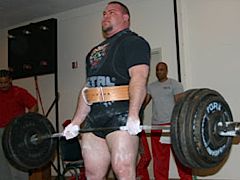 It's now been a little over two months since I switched to biphasic sleeping, and I have no regrets at all. It's great.
It's now been a little over two months since I switched to biphasic sleeping, and I have no regrets at all. It's great.
Before taking a quick look at a few observations I've made over the past month or so, a quick mention of another fitness enthusiast who's taking the plunge : Eric from Ultimate Health & Conditioning. He's recently completed the second day of the new routine, and from my own experience I'd say another 4-5 days should see him past the most difficult part - the all-important first week. Once your body adapts, it's all good.
Incidentally, he's taking the naps much earlier than I am (around 1-2pm rather than around 7:30pm); which may fit better into a typical 9-5 work schedule. At least if you can take a 1.5 hour lunch.
Now, a few things I've noticed lately :
The 90 minute sleep cycles are shortening
Despite the fact that the original article that drew me towards biphasic sleeping discussed the 90 minute sleep cycle, I've found that the cycle length is gradually shortening. I'm not quite sure how short it can become (and still contain all of the expected phases), but it currently stands at around 75-80 minutes. The experiences of Glen Rhodes suggest that it won't move much below 75, but I'm keen to see just how individual that figure is.
The most notable side-benefit of this is that the alarm - which is always set for multiples of 90 - is there simply as a backup, and is rarely heard. As you'll see in a minute though, it's still set religiously.
Alarm still set
I still set the alarm on both naps and core sleep. The main reason for this is that the quality of sleep - although usually extremely high - varies. This may be due to local temperatures (it's getting warm here, even at night), an excess of caffeine (I occasionally forget there's a nap coming up, and grab a coffee in the late afternoon), or stress (either physical or mental). Having the alarm present actually increases the quality of sleep at these times. One less thing to worry about.
No more on vs in
During the trial period (the initial 30 days) I discovered that differentiating the naps from core sleep was best achieved by lying on top of the bed for naps, and climbing into it for the core sleep. I no longer mark this distinction, and climb into bed for each sleep period. My body seems to have adapted to the change well enough to wake in time on most occasions (and the alarm is always there in any case).
Oversleeping and a simple fix
I still oversleep on the nap occasionally (perhaps once per week). This isn't usually more than an additional cycle or two, and the quickest way to get back on track seems to be :
- get up and do something for a few hours
- go to bed no later than 5am and sleep for a further two cycles
I arrived at this after experimenting with various combinations of nap/waking period/core sleep. Even a night of monophasic sleep. The result was that this combination worked, yet any other combination left me feeling incredibly tired for much of the following day. Eric, I'm curious to see how you handle a similar situation - especially as you have a much longer period between the nap and core sleep.
Tired by 7pm
Over the past few weeks I've noticed that I'm now tired by around 7pm; at least as tired as I would've been by midnight when on monophasic sleep. The nap, however, completely resets this, and following 75-80 minutes' sleep I feel refreshed and ready to start the day. Again.
In case you're wondering, this rejuvenated feeling only lasts 4 hours or so, which is one of the reasons I switched back to evening naps following the week-long trial of the afternoon variety.
Overall, it's working well. No plans to change.
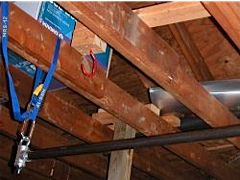 This looks great -
This looks great - 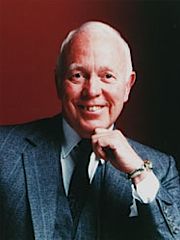
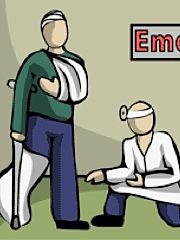 As part of this month's
As part of this month's 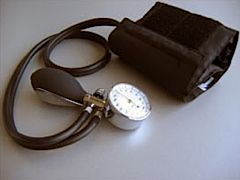
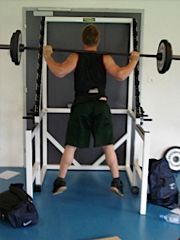
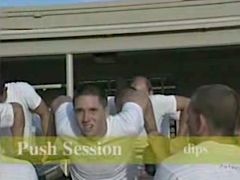 Via the
Via the 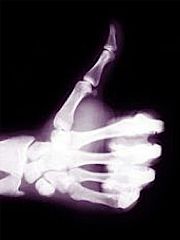 Quite a few fitness and strength blogs have passed this way over the past couple of years; here's a quick look at 20 of the best. Enjoy.
Quite a few fitness and strength blogs have passed this way over the past couple of years; here's a quick look at 20 of the best. Enjoy.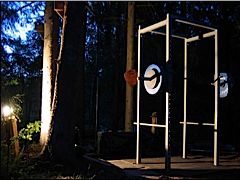
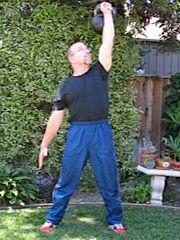
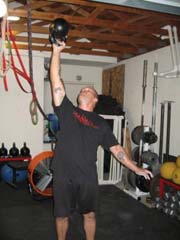








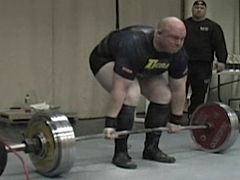
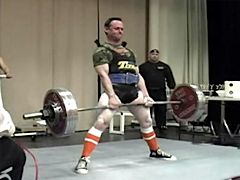


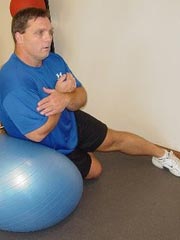


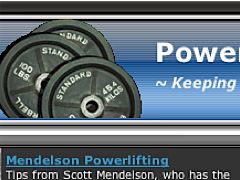
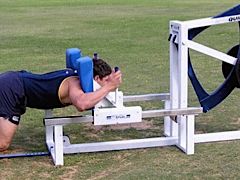
 If you're already a fan of
If you're already a fan of 